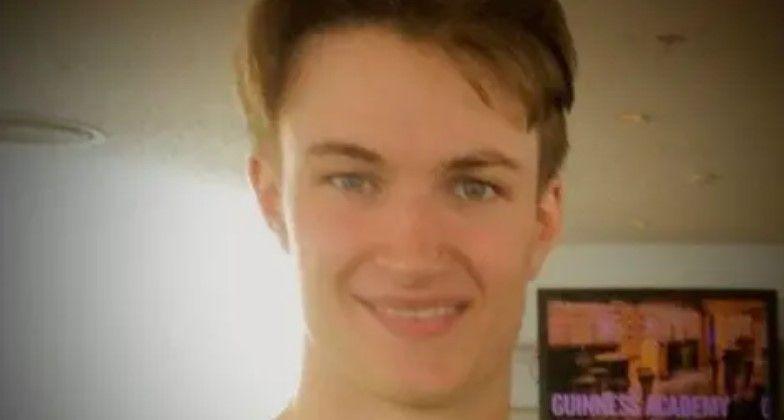Lifeguards made 'erroneous assumptions' about swimmer

Christopher Rogers was 20 years old when he died at the Orchard Leisure Centre in Armagh in April 2017
- Published
There were "utterly catastrophic consequences" because three lifeguards failed to show reasonable care towards a swimmer who blacked out and drowned, a senior barrister has said.
Christopher Rogers, who was 20, died during a swim session at the Orchard Leisure Centre in Armagh in 2017.
Cathal Peter Forrest McVeigh, 35, of Dunamony Road in Dungannon, James Monaghan, 26, of Folly Lane in Armagh and William Holden, 26, of Unshinagh Lane in Portadown were on duty the night he died.
The three accused each face a single count that being employees, they "failed to take reasonable care for the health and safety of other persons who may be affected by [their] acts or omissions at work".
All three men have pleaded not guilty.
On Monday, Newry Crown Court heard the three lifeguards "made utterly erroneous assumptions" about Christopher Rogers as he lay at the bottom of the swimming pool for five minutes after blacking out.
The court previously heard that on the day of his death Mr Rogers, who has been described as an experienced swimmer, had been underwater for about a minute before breaking the water's surface.
He then suffered a hypoxic blackout due to a lack of oxygen and descended to the bottom of the pool and lay there for five minutes and 14 seconds before a rescue attempt was initiated.
He was later pronounced dead.
'Completely normal'
One of the defendants, James Monaghan, told the jury on Monday that he "considered it completely normal" for Mr Rogers to be submerged holding his breath because "it was just part of swimming training".
Liam McCollum KC described it as "a case of common sense" to know an unconscious person needs to be removed from the bottom of a pool and that it is dangerous for someone to be submerged for more than two minutes.
Gavan Duffy, defence KC for Mr McVeigh, argued that, given the lack of training or knowledge about hypoxic blackouts, there had been a reasonable assessment that Mr Rogers was "deliberately holding his position under the water and that he was moving in a purposeful way".
'Missed the signs'
Appealing to the jury on Monday, prosecuting KC Liam McCollum asked "was he not entitled to the same protection as any other swimmer in that pool?"
The jury have heard that during the time Mr Rogers was submerged, the lifeguards were aware of him and had been observing him.
The court previously heard that Mr McVeigh and Mr Monaghan were engaged in conversation for two minutes and 20 seconds and before they attempted a rescue, Mr McVeigh had banged on the steps with a pole and had asked another swimmer to check on him.
That swimmer believed that he got a "thumbs-up" sign from the 20-year-old swimmer.
The "thumb- up" signal was actually Mr Rogers' body experiencing decerebrate and decorticate posturing where his limbs moved involuntarily during a seizure brought on by his brain being starved of oxygen, the court heard.
It is the prosecution's case that each of the defendants breached their duty of taking reasonable care by waiting too long to initiate a rescue, that the prolonged changeover of pool duties distracted them and that they "missed the signs" that Mr Rogers was in danger.
The jury have also heard however that during their training and induction, the lifeguards received no guidance about hypoxic blackouts or the signs to look for or about the dangers of prolonged breath holding and extensive underwater swimming.
On Tuesday, the jury will hear a final defence speeches and consider their verdicts.